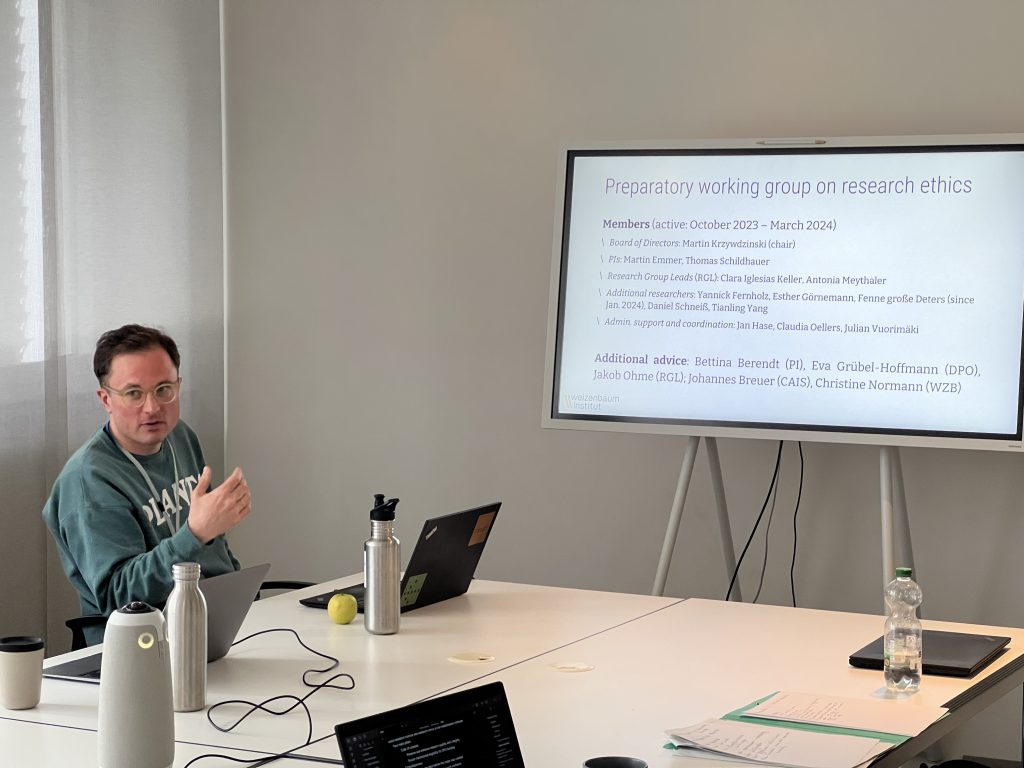On April 18 2024, the Methods Lab organized the workshop Research Ethics – Principles and Practice in Digitalization Research to meet the increasing relevance and complexity of ethics in digitalization research.
In the first part of the workshop, Christine Normann (WZB) introduced participants to good research practice and research ethics in alignment with the guidelines of the German Research Foundation (DFG). Besides the need to balance the freedom of research and data protection, she informed about important institutions, noted the difficulties of formulating ethics statements for funding applications before study designs are finalized, and provided some practical tips regarding guidance when planning research.
Next, Julian Vuorimäki (WI) guided participants through the handling of research ethics at the Weizenbaum Institute. He focussed on the code of conduct, ombudspersons, guideline for handling research data, and the newly founded review board. The latter is in charge of providing ethics reviews for individual projects and studies, which can be applied for through a questionnaire on the institute website.

In the second part of the workshop, three researchers presented practical ethical implications and learnings from research projects. Methods Lab lead Christian Strippel reported on a study where user comments were annotated to allow for the automatic detection of hate speech. He focused on possible misuse for censorship, the confrontation of coders with questionable content, and the challenges of publishing the results and data regarding copyright and framing. Tianling Yang (WI) presented ethical considerations and challenges in qualitative research. The focus lied on consent acquisition, anonymity and confidentiality, power relations, reciprocity (i.e., incentives and support), and the protection of the researchers themselves due to the physical and emotional impact of qualitative field work. Finally, Maximilian Heimstädt (Helmut Schmidt University Hamburg) talked about ambiguous consent in ethnographic research. He gave insights into a study in cooperation with the state criminal police office to predict crime for regional police agencies. Not all individuals in this research could be informed about the research endeavor, especially when the researchers accompanied the police during their shifts, which raised the question of how to find a balance between overt and covert research.
The Methods Labs thanks all presenters and participants for this insightful workshop!